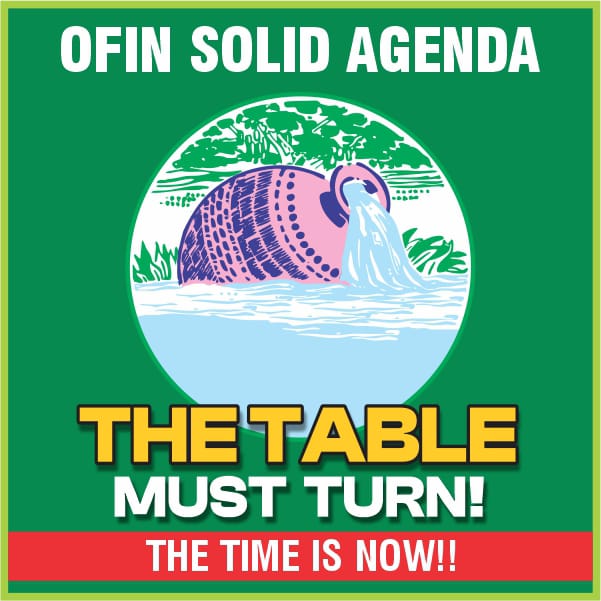News
Why Ofin Deserves Remo Federal Constituency Seat – A Case For Political Fairness, Inclusiveness And Equity In Remo

Ofin- In the wake of the unfortunate passing of Rt. Hon. Adewunmi Oriyomi Onanuga (Ijaya), Remo Federal Constituency stands at a crossroads. The bye-election slated for August 16 presents not only a democratic process to fill a vacant seat but also an opportunity for political actors to reassess how equitable representation is distributed across the zones that make up the constituency. Amid the flurry of political maneuverings, one fact is quietly but consistently gaining ground—Ofin deserves serious consideration this time.
In recent weeks, reports have emerged indicating that all aspirants from Ofin, regardless of political party affiliation, have reached an unprecedented consensus: they are ready to align with any party that fields a candidate from their axis. This unity is not rooted in entitlement, but in a long-overdue call for inclusion. It signals a matured political posture that transcends personal ambition and speaks to a collective interest of a historically sidelined bloc.
Ofin, an integral part of Sagamu, has for years remained loyal to the democratic process and active in grassroots mobilization. Yet, it has repeatedly found itself on the margins when it comes to high-profile political representation—especially at the federal level. Many argue that this recurring pattern does not reflect the balance and fairness that democracy ideally upholds. What the current political climate presents is a rare chance to correct a perceived imbalance without disrupting party structures or creating internal conflict.

Beyond sentiment, there is political logic to this agitation. In the current political landscape, voter psychology is shaped not just by manifestos but by feelings of inclusion and identity. Any political party that ignores the symbolic weight of this moment could risk alienating a critical voter base. Conversely, a party that listens and zones its ticket to Ofin may find itself tapping into a well of enthusiasm and unity that could translate to electoral advantage.
While it is important not to stoke division along zonal lines, stakeholders must also acknowledge historical omissions. Since Nigeria’s return to democracy in 1999, certain parts of the Remo Federal Constituency—most notably Ofin (Sagamu 1 State Constituency) and Remo North—have never had the opportunity to represent the constituency at the green chamber. This fact, though quietly accepted over the years, now quietly speaks volumes. Equity, as a democratic ideal, thrives best when fairness is not only done but seen to be done.
Recommended News:
- Tension in Nasarawa As Suspected Herdsmen Kill ‘Iron Money’, Injure Police Officer In Kadarko Attack
- 5 Key Reasons Adewale Adesanya Is Emerging As A Top Contender For Remo Federal Constituency Bye-Election
- Empathy, Fairness, And Political Justice: Why Offin Should Complete Ijaya’s Tenure – Prince Lahbash
It is not uncommon for political parties to weigh electability, party loyalty, and public appeal when making decisions on candidacy. However, zoning remains one of the tools Nigerian politics uses to foster a sense of balance in heterogeneous societies. The agitation from Ofin is not an affront to party supremacy but a call for strategic realism. In a region where politics is deeply local, understanding the pulse of the people is more than a strategy—it’s a survival instinct.
Furthermore, the decision of Ofin aspirants to stand behind any party that supports their zone sends a message that goes beyond this election. It is a lesson in political unity, one that should inspire other communities to place collective interest above personal ambition. It is this type of unity that strengthens democratic institutions and gives meaning to political participation at the grassroots.
It is now left to the political class—across parties—to either seize the moment or sidestep it. One path fosters inclusion and electoral momentum, the other risks reinforcing a status quo many voters have grown weary of. The outcome of this choice will not only shape the bye-election but may echo into future political alignments in Remo and beyond.
In the end, this is not just Ofin’s moment—it is a test of how seriously we take inclusivity in our politics. The question is not whether Ofin is ready. The real question is: are we ready to do what is just, fair, and politically wise?





















